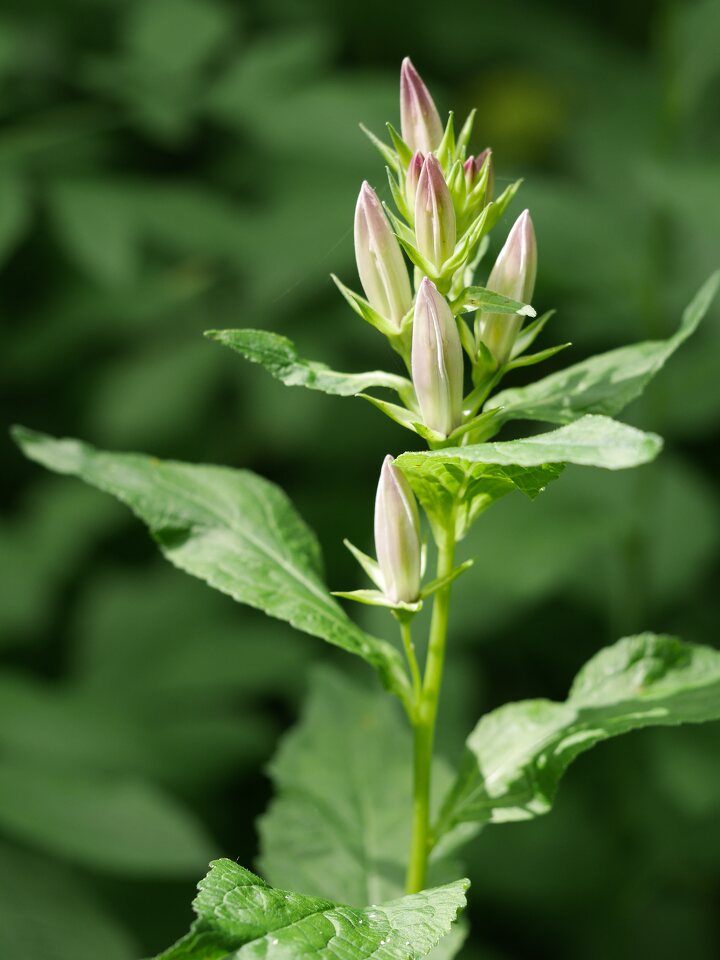
Campanula latifolia · plačialapis katilėlis
- giant bellflower, large campanula, wide-leaved bellflower
- Breitblättrige Glockenblume
- plačialapis katilėlis
- platlapu pulkstenīte
- dzwonek szerokolistny
https://en.wikipedia.org/wiki/Campanula_latifolia It is native to Europe and western Asia and is widely grown as an ornamental plant. It is native to Europe and western Asia and is widely grown as an ornamental plant.
Campanula latifolia is a clump-forming perennial herbaceous plant growing to a height of 60 to 120 cm. The stem is unbranched, erect, and shortly pubescent, basal leaves are stalked, broadly ovate with a heart-shaped (cordate) base, while the upper leaves are ovate-lanceolate, stalkless, softly hairy with bluntly toothed margins. The inflorescence is a many-flowered terminal raceme or in the axils of upper leaves and has subtending bracts. The flowers are hermaphrodite, bell-shaped, initially erect but later nodding, and 35 to 60 mm long. The calyx is fused with five narrow lobes, eventually spreading. The corolla is pubescent with five dark violet-blue fused petals. There are five stamens and a pistil formed from three fused carpels. The fruit is a hairy, nodding capsule. The flowering period is from July to September.
‥
0 comments
Add a comment